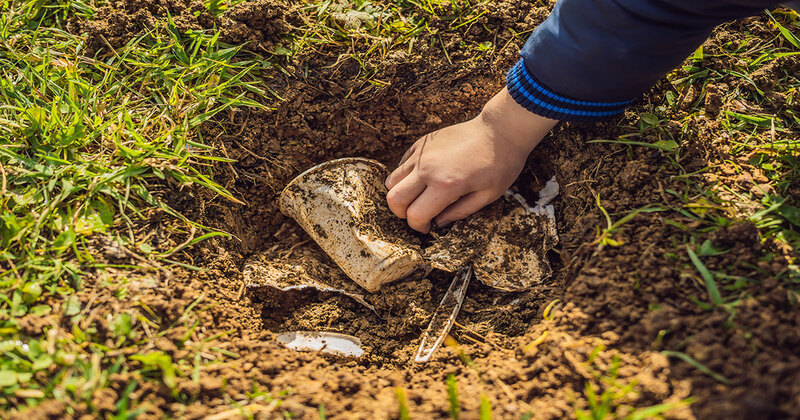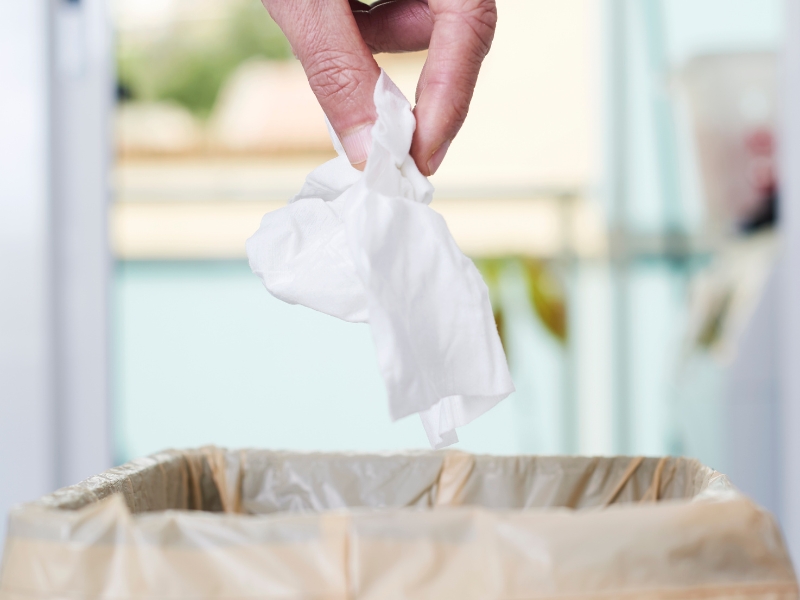Are wet wipes biodegradable? Wet wipes are commonly used, but their disposal can cause serious environmental problems. This article will explore the facts about wet wipes, their biodegradability and ecological impact.
Learn more: 10 best wet tissue wipes with good price for baby & adult health
1. What does “biodegradable” mean?
Before learning “Are wet wipes biodegradable?” let’s find out “What is biodegradable?” Biodegradable refers to substances or products that are broken down by living organisms like bacteria and fungi into harmless substances. This means the material can be returned to the environment without causing harm. Sometimes biodegradation can take years, and sometimes it can take centuries.

Read more: Wet facial tissues | Benefits & Tips to Choose the right one for skin
2. Are wet wipes biodegradable?
Most wet wipes produced are not biodegradable. Although some wet wipes are biodegradable, not all of them are not made from organic products. Biodegradable wet wipes are made from natural materials such as cotton, viscose, wood pulp, and bamboo, they eventually break down into small parts after a period of time. When it comes to wet wipes that are not biodegradable, they often contain a number of plastic materials such as polyester, making them difficult to break down.
You may like: Alcohol wet tissue – Best rated antibacterial wipe & All you need to know

3. What happens when biodegradable wipes go down the drain?
Whether toilet wet wipes are biodegradable or not, flushing them down the toilet often leads to clogging. Over time, wipes accumulate and form more extensive blockages because they don’t easily travel through the sewer line. Even if they make it to the sewer, they can cause significant pipe blockages.
Not to mention, flushable wet wipes can cause wastewater equipment damage. Wipes catch on impellers, and this leads to pump breakdowns. This is why many wastewater treatment plant operators ask residents not to flush wipes, even if they’re labeled as flushable or biodegradable.

Discover now: Are wet wipes safe for septic systems? Do’s and Don’ts
5. How to dispose of biodegradable wipes?
In general, wet wipes should be disposed of in the trash can or waste bin – not down the drain. This includes biodegradable wipes, compostable wipes, cotton face cloth wipes, etc. If you use a “flushable wipe,” ensure it meets the dispersibility standards set forth by the IWSFG.

Try keeping a separate waste bin in the bathroom to collect used wet wipes. This keeps your recyclable waste different from your non-recyclable. And it prevents severe pipe blockages and sewer blockages down the line.
Find out more: How to dispose of wet wipes? The step-by-step guide
5. FAQs about biodegradable wipes?
Q1: Are flushable toilet wipes biodegradable?
Not all flushable wipes are biodegradable. Therefore, it’s essential to check the label to verify whether wet wipes are biodegradable. However, regardless of their biodegradability, it’s best not to flush them. Instead, it’s recommended to dispose of them in a designated waste bin.
Q2: Are biodegradable baby wipes flushable?
Even if containers say wipes are flushable, it’s better to dispose of them in a separate waste bin instead. This prevents plumbing issues, sewer blockages, and other water waste issues.
Q3: Do biodegradable wipes decompose in landfills?
Biodegradable wipes can decompose in landfills. But sometimes, breaking down takes a long time because the landfill conditions aren’t ideal.
Are wet wipes biodegradable? Some wet wipes, made of wood and cotton, are biodegradable. If wet wipes contain plastic, they will take hundreds of years to become biodegradable and harm the environment. So, the next time you consider using wet wipes, make an informed decision that benefits you and the environment.
Dong Hiep Trading and Investment Joint Stock Company:
- Representative office: 69B Thuy Khue, Thuy Khue Ward, Tay Ho District, Ha Noi City.
- Manufacturing site: Lot CN7, Tu Liem Industrial Cluster, Minh Khai Ward, Bac Tu Liem District, Ha Noi City.
- Hotline: (84-24) 3716 0270.
- Website: https://dhti.vn/en/
Related information:




